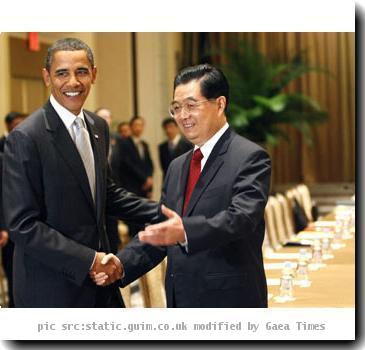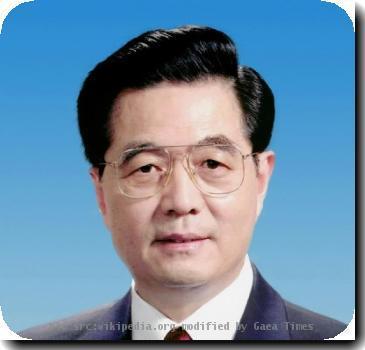China premier pledges more attention to jobs, living standards to ensure country’s stability
By Christopher Bodeen, APFriday, March 5, 2010
China premier pledges attention to jobs, stability
BEIJING — Highlighting threats to social stability, China’s premier said Friday that more needs to be done to create jobs, strengthen social welfare and boost development in restive regions such as Tibet.
In an annual policy speech, Wen Jiabao addressed many of the concerns stirring deep unease among China’s 1.3 billion people, pledging to narrow a yawning wealth gap, increase the stock of affordable housing, boost the moribund rural economy and fight rampant corruption.
“Everything we do, we do to ensure that the people live a happier life with more dignity and to make our society fairer and more harmonious,” Wen told the nearly 3,000 deputies gathered in the Great Hall of the People for the opening of the National People’s Congress.
The annual session — the most public event the authoritarian government holds — took place amid heavy security in Beijing to prevent disruptions. Police in recent days warned and detained political activists. Uniformed and plainclothes police searched bags and blocked off vast Tiananmen Square, next to the meeting hall. More than two dozen people who hoped to petition officials for redress of grievances or who raised suspicion were bundled into a police bus and driven away.
Across China, protests — some violent — have grown common among farmers and blue collar workers angered by land seizures, unpaid wages and other acts of unfairness. In recent years, even members of the urban middle class have taken to the streets in opposition to some policies, while concern is rising over the future of millions of jobless college graduates.
“Negative public sentiment and social instability are increasing rapidly in China. These issues are not new ones. Only now they have become more severe and more evident, and they could carry social and political costs,” said Yang Fengchun, a professor of government at Peking University.
China’s Communist leadership has staved off more serious discontent by focusing on economic growth, and the country escaped the worst of the global downturn by way of a flood of $1.4 trillion in bank lending and government stimulus.
However, Wen said such measures would not be renewed and the increase in government spending would fall to 11.4 percent this year, half of what it was in 2009. A leaner budget has forced down the increase in defense spending to 7.5 percent, the lowest level in more than 20 years.
“This is a crucial year for continuing to deal with the global financial crisis,” Wen said in the two-hour speech. “We still face a very complex situation.”
He hailed the Communist leadership for shepherding the recovery. China is now the world’s largest auto market, its Internet users outnumber the U.S. population and its economy is on track to replace Japan as the globe’s second largest. Many Chinese take pride in the country’s prosperity and global respect.
Wen promised hefty outlays for pensions, education, health care and subsidies for farmers to buy small cars and household appliances — all to spread prosperity more fairly.
Although Wen did not mention anti-government protests by Tibetans in 2008 and ethnic fighting among Muslim Uighurs and China’s Han majority in 2009, he said a special effort will be made to raise living standards of minorities.
“We need to take a clear-cut stand against attempts to split the nation, safeguard national unity, and get ethnic minorities and the people of all ethnic groups who live in ethnic minority areas to feel the warmth of the motherland as one large family,” Wen said.
Few initiatives in Wen’s speech were new. The cautious government prefers incremental policymaking to bold shifts. Wen and President Hu Jintao began boosting social spending earlier this decade, recognizing the threat that social unrest poses to Communist Party rule. Now in the last three years of an expected 10-year term, they have less incentive and political support to strike out in new directions.
Overall, government spending is projected to rise to 8.45 trillion yuan ($1.2 trillion), on the back of a deficit that will rise at 13 percent. Slated for higher outlays were education (9 percent), health care (8.8 percent), social security (8.7 percent) and low-income housing (14.8 percent). All were bigger than the jump in defense spending.
Tags: Asia, Beijing, China, East Asia, Greater China, Higher Education, Hu Jintao, Political Activism, Political Issues

